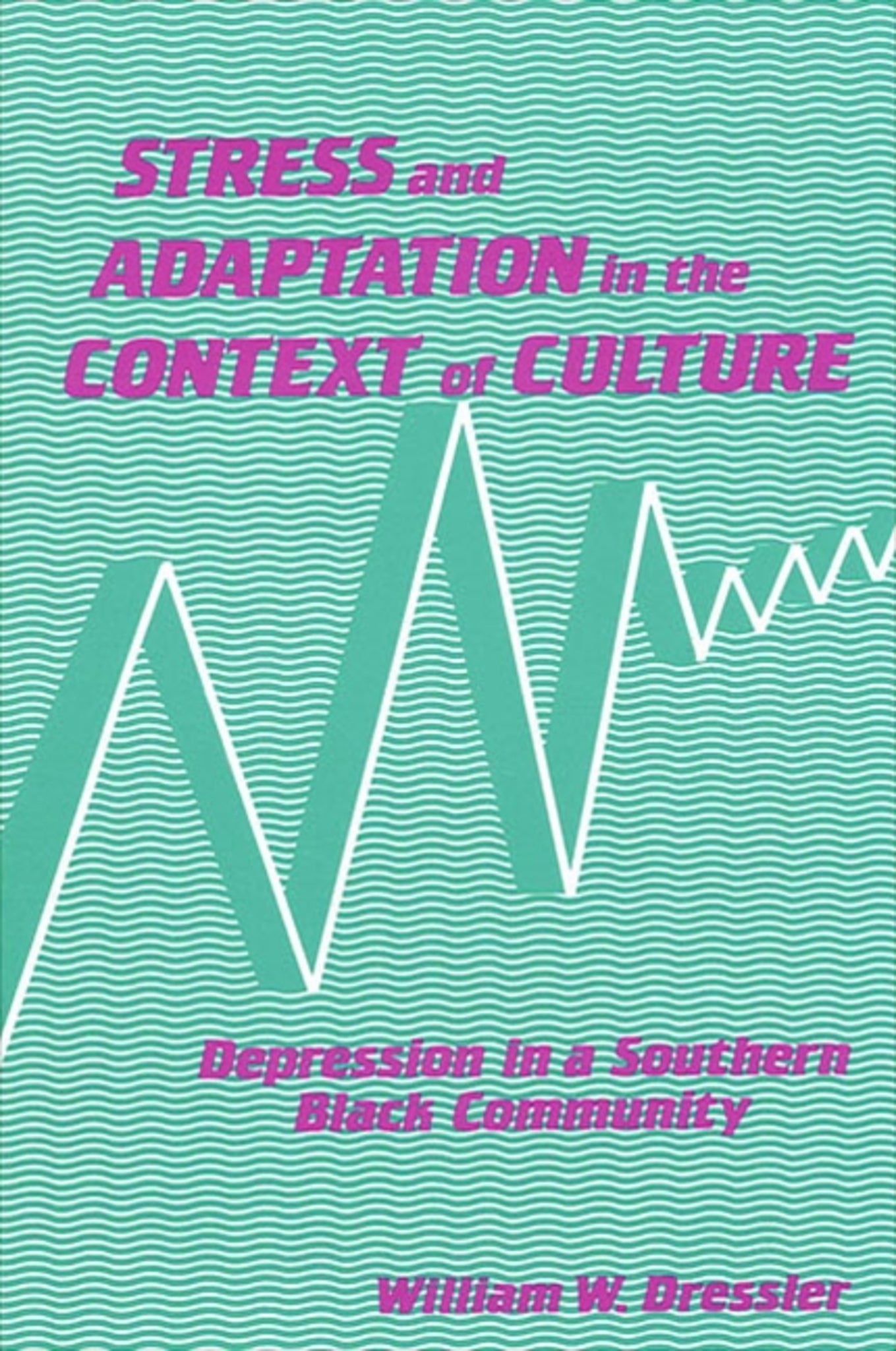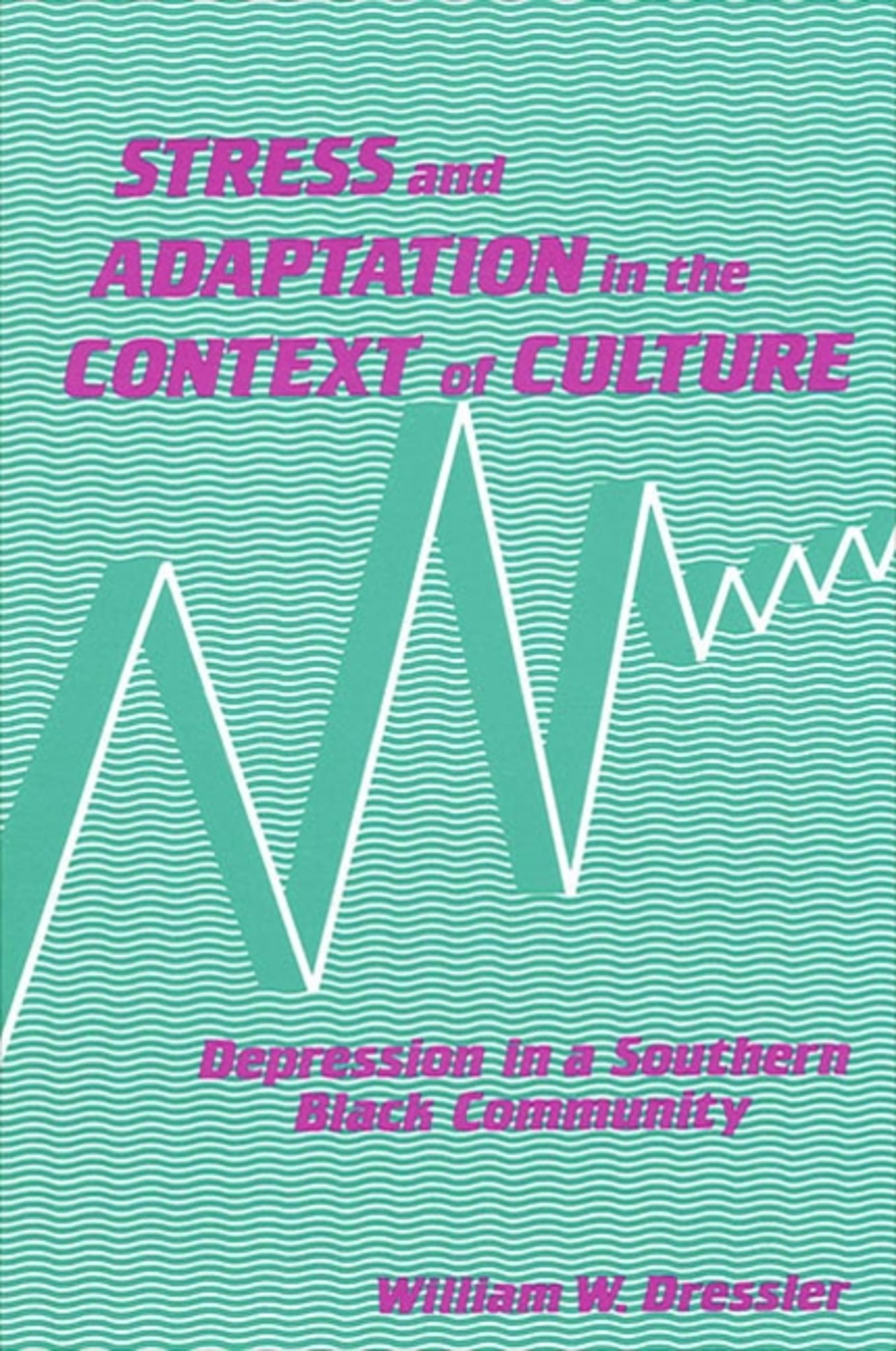We're sorry. An error has occurred
Please cancel or retry.
Stress and Adaptation in the Context of Culture

Some error occured while loading the Quick View. Please close the Quick View and try reloading the page.
Couldn't load pickup availability
- Format:
-
24 January 1991

This book provides a unique study in social and cultural psychiatry, carried out in an African-American community in the rural South. Using a combination of concepts and methods from anthropology and social epidemiology, the specific social and psychological risk factors for depression are examined. The author places special emphasis on how that risk is modified by the social and historical context of the Black community in the United States, and suggests a new basis for the sociocultural comparative study of health and disease.


"The author brings maturity of understanding and balance in his examination of vulnerability and resistance factors related to symptom production in populations at risk. His integrative review of theory and research in the field is first rate. His selection of variables will undoubtedly influence other scholars in the field. His imaginative design strategy formally calls attention to matters which are grossly underinvestigated. The organization is excellent, the style of writing is lucid, and the findings are readily accessible to persons with introductory background in multivariate statistics. Introductory chapters are structured so that it made me eager to get to findings." — Jerome Taylor, Ph.D., Director, Right Start Programs, Department of Black Community Education Research and Development, University of Pittsburgh
"The case studies enrich and lend substance to the data on social class and support, and the quantitative measures and analyses of stress lend support to the author's historical discussions. I think this is a model of good research." — John F. Wilson, University of Kentucky College of Medicine
Preface
Introduction
1. Studies of Stress and Disease
The Stress Process
Social Class and Mental Disorder
Life Events
Chronic Social Stressors
Resistance Resources
Social Support
Personal Coping Resources
Integrative Studies
Research in the Stress Process: A Critique
Modernization and the Stress Process
Goals of the Present Study
Summary
2. Theoretical Orientations in the Study of African-American Culture
Early Studies of the Black Community
The Pathology Perspective
Responses to the Pathology Perspective
Critique
Research on Health in the Black Community
Summary
3. Methods and the Measurement of Depressive Symptoms
Community Rapport
Qualitative Research Methods
Quantitative Research Operations
Sampling
The Dependent Variable: Depressive Symptoms
Depressive Epidemiology
Summary
4. The Community
Economic Dimensions of the Community
Occupational Class
Employment
Education
Style of Life
Income
Predictors of Economic Position
Household and Family Organization
Household Structure
Family Organization
A Multivariate analysis of Household Structure
The Church and Community Organization
The Church
Voluntary Associations and Community Resources
The Civil Rights Movement
Perceptions of Inequality
The Civil Rights Movement
Discussion
Social Class
Household, Family, and Patterns of Help-seeking
Models of Racism
Intra-cultural Diversity and the Black Community
5. Stressors and the Risk of Depression
Lifestyle Incongruity and Depression
Stressful Life Events and Depression
Unemployment and Depression
Economic Stressors and Depression
Social Role Stressors and Depression
The Patterning of Stressors by Class and Generation
Discussion
6. Resistance Resouces
Resistance Resources in the Black Community
Social Support
Cultural Resources
Specifying the Effects of Resistance Resources
Context-specific Models of Buffering Effects
The Younger, Lower Economic Class Group
The Younger, Higher Economic Class Group
The Older, Lower Economic Class Group
The Older, Higher Economic Class Group
Discussion
7. Case Studies
Case Study One
Case Study Two
Case Study Three
Case Study Four
Case Study Five
Case Study Six
Case Study Seven
Case Study Eight
Discussion
8. Conclusions and Implications
Appendix I: Interview Guide for Ethnographic Research
Appendix II: Survey Interview Schedule
Appendix III: Regression Diagnostics and Alternative Techniques of Model Estimation (with Carolyn J. Bailey)
Appendix IV: Correlation matrices
References
Index



